In pictures: The empty railways of America
- Published
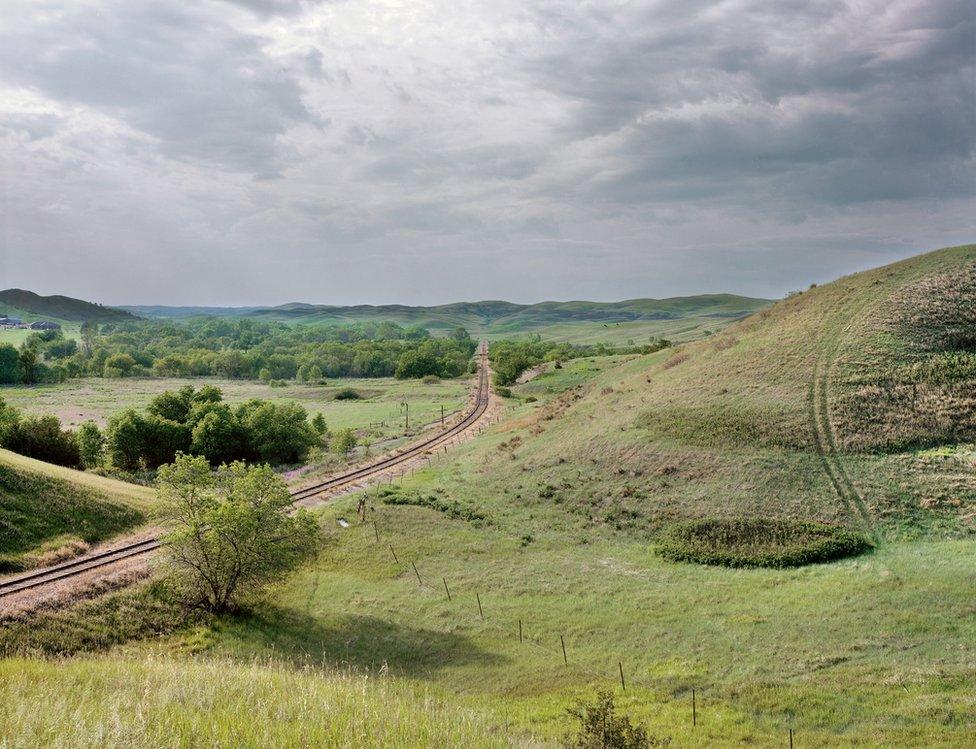
West from Oacoma, South Dakota
One of photographer John Sanderson's earliest memories was family road trips to Pennsylvania from his home in Manhattan, New York.
While on one of these trips, 13-year-old Sanderson discovered the delight of taking pictures when shooting the Strasburg Rail Road and its historic steam engine.
Returning to the subject of railways in adulthood, he rebelled against his younger self and this time chose to photograph American railroads devoid of trains.
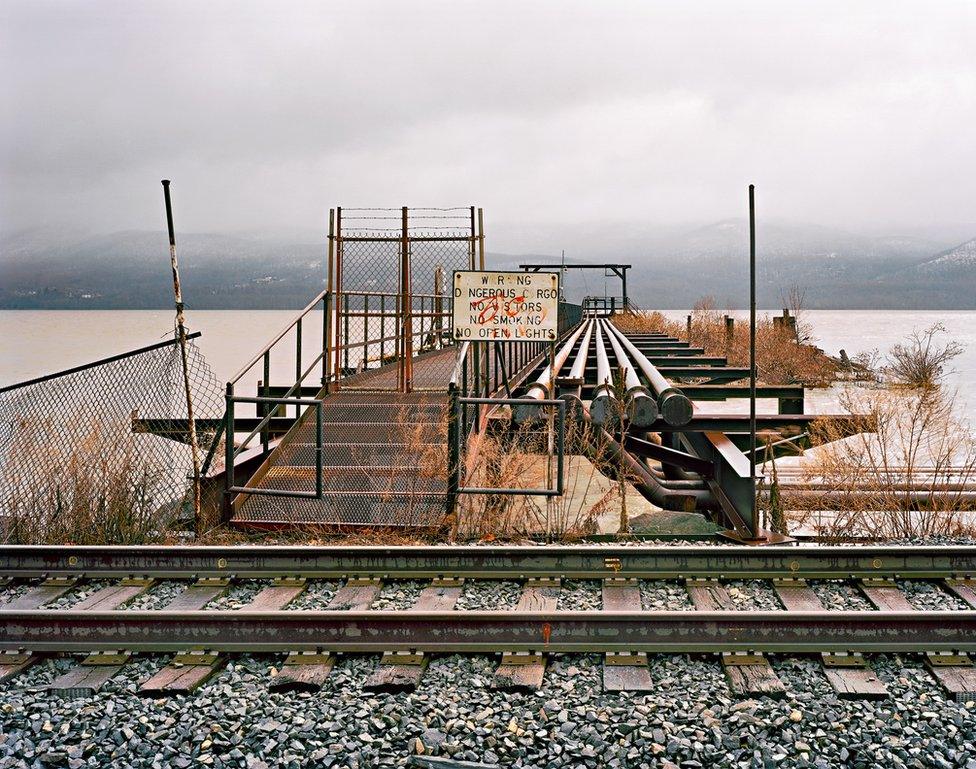
Fuel transfer station, New Windsor-on-Hudson, New York
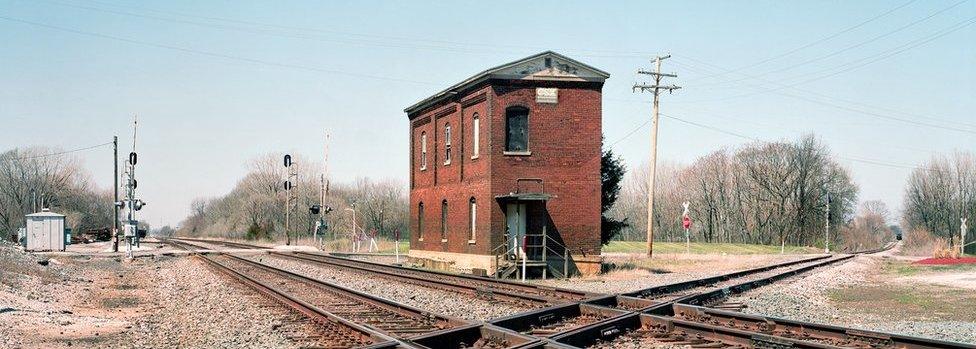
Tower at diamond crossing, Walkerton, Indiana
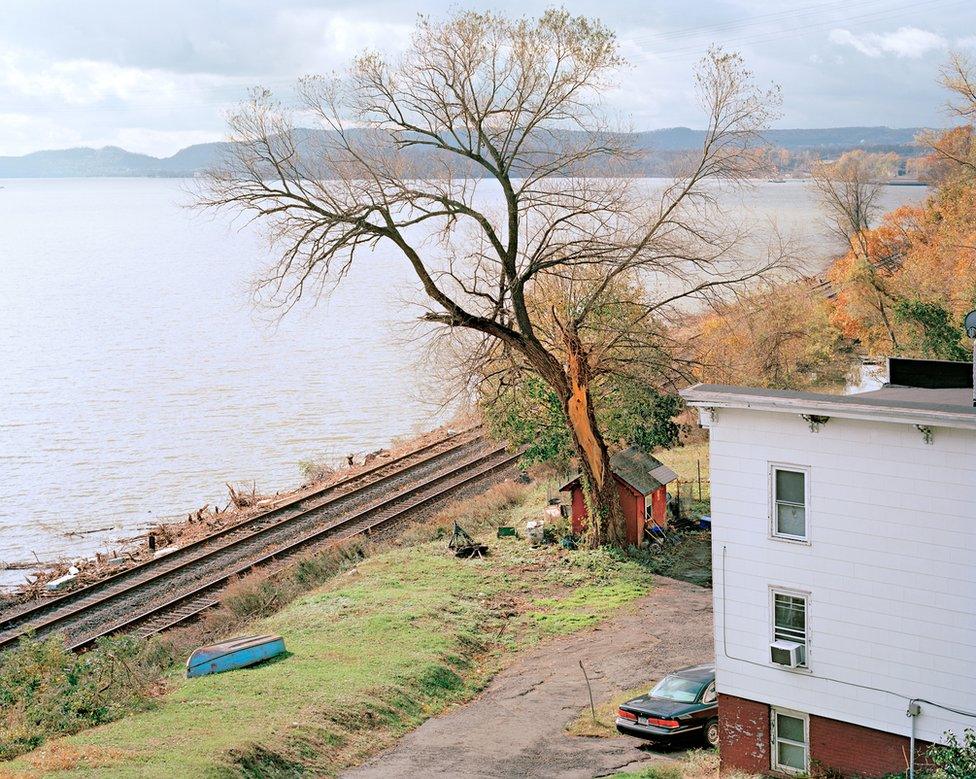
Early morning, Stony Point, NY
This, he believed, allowed the pictures to focus on the surrounding context of architecture and landscape rather than simply the temporary presence of a train.
He said, "The proximity of the railbed to the environment, I later discovered, was a perfect way to explore America's national character."
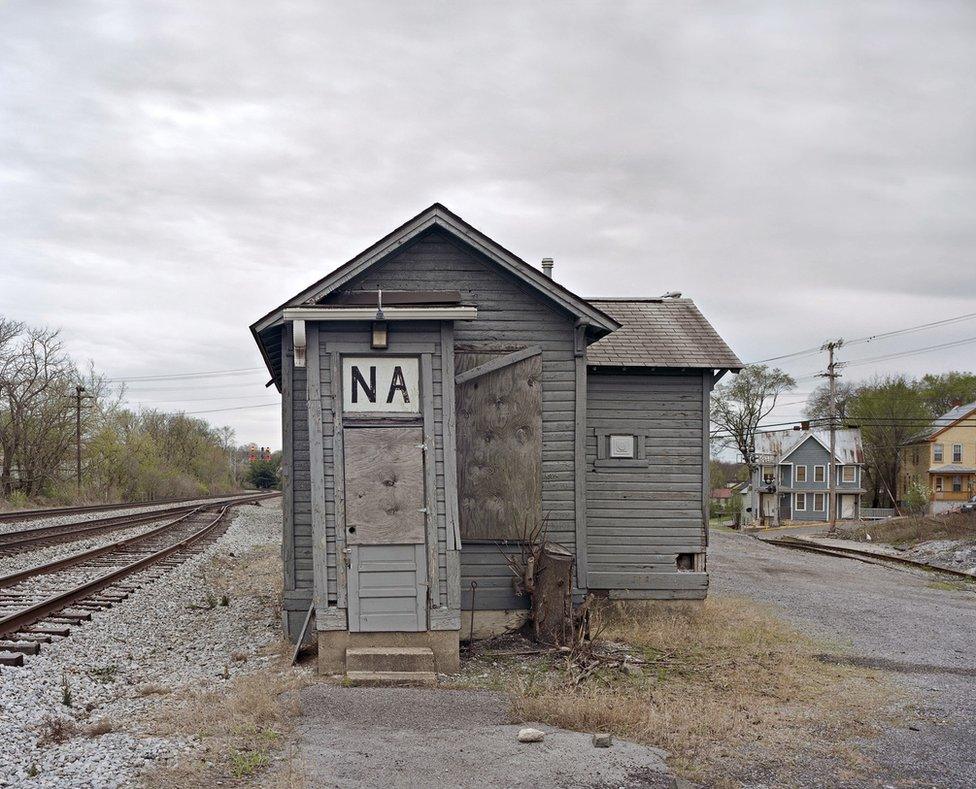
NA Tower, Martinsburg, West Virginia
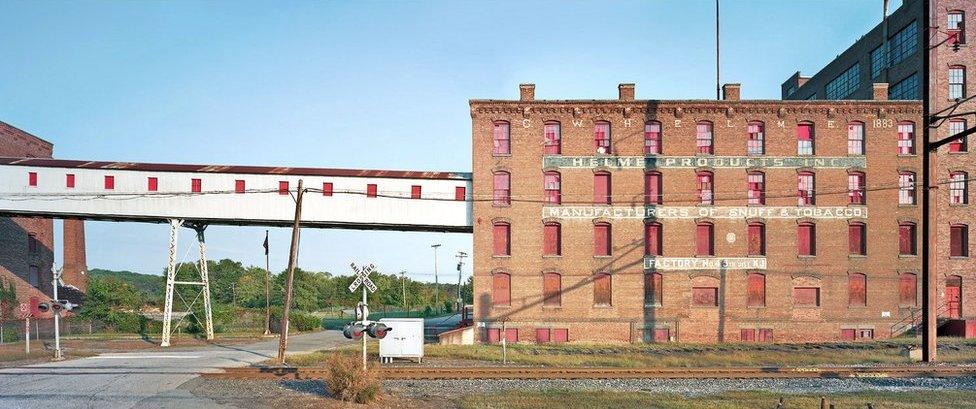
Helme Snuff Mill, Helmetta, New Jersey
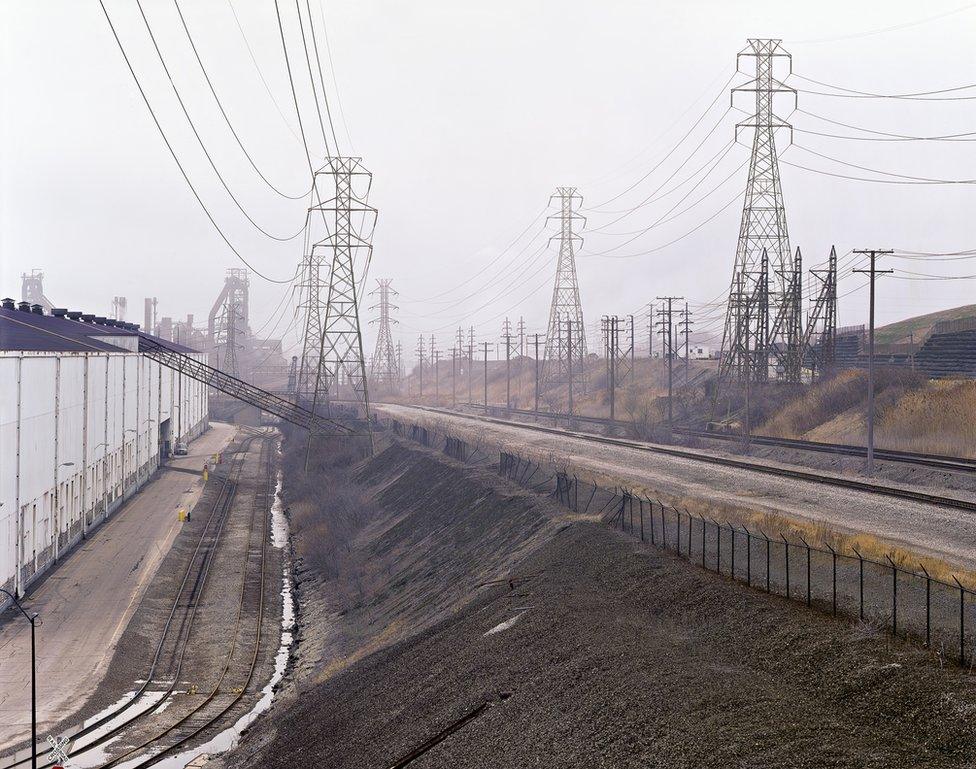
Steel Mill landscape, Cleveland, Ohio
The photographs capture everything from urban to rural environments, from the highest mountain ranges to the smallest towns.
Landscapes from the eastern to western states vary from high rise buildings, to grain silos and open fields.
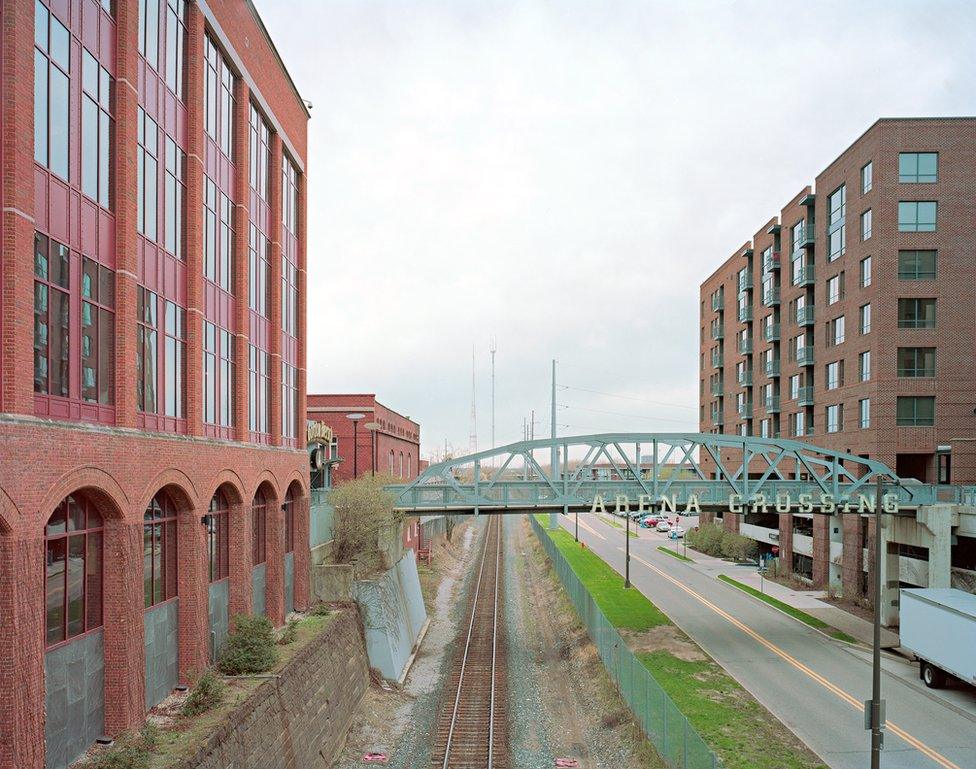
Mainline out of town, Columbus, Ohio
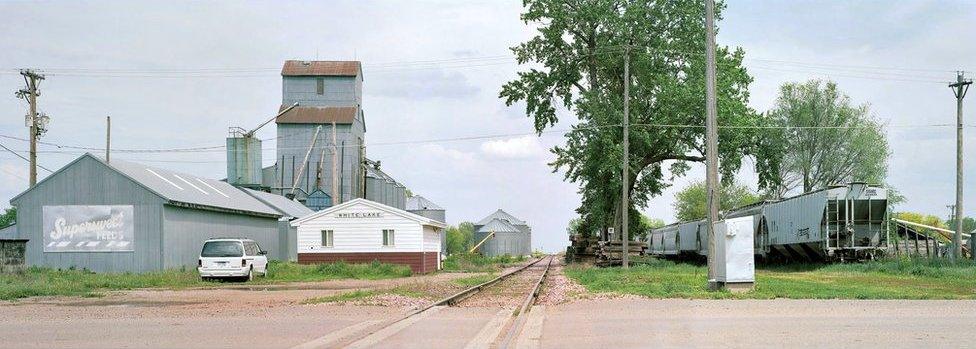
Depot, White Lake, South Dakota
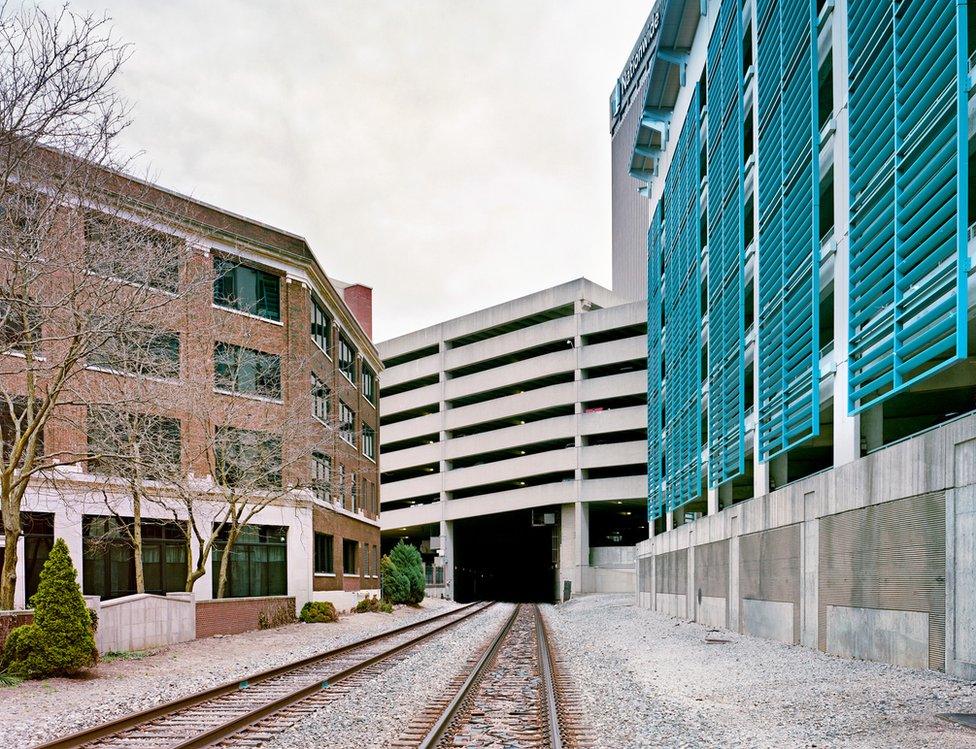
Passage, Downtown Columbus, Ohio
At times, Sanderson deliberately abandoned the typical vanishing point perspective of the tracks, instead producing horizontal views of the buildings that run alongside the tracks.
"As the project grew," he said, "shooting from this angle started to make so much sense because many of these places were built in lateral alignment with the railroad."
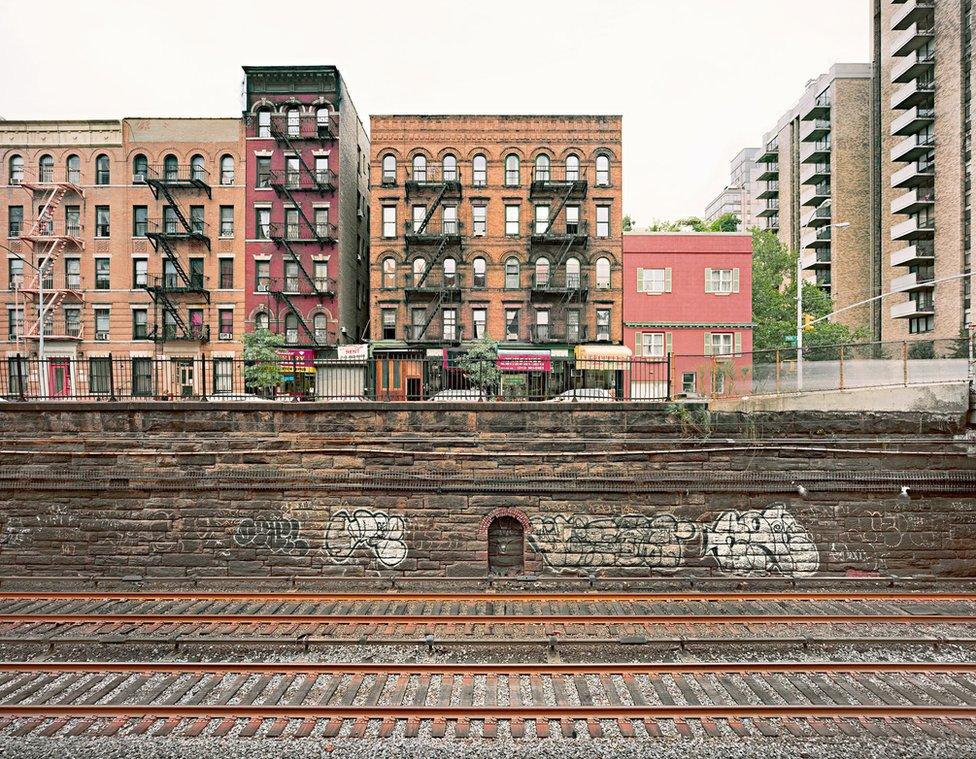
Park Avenue Tunnel Cut, New York City
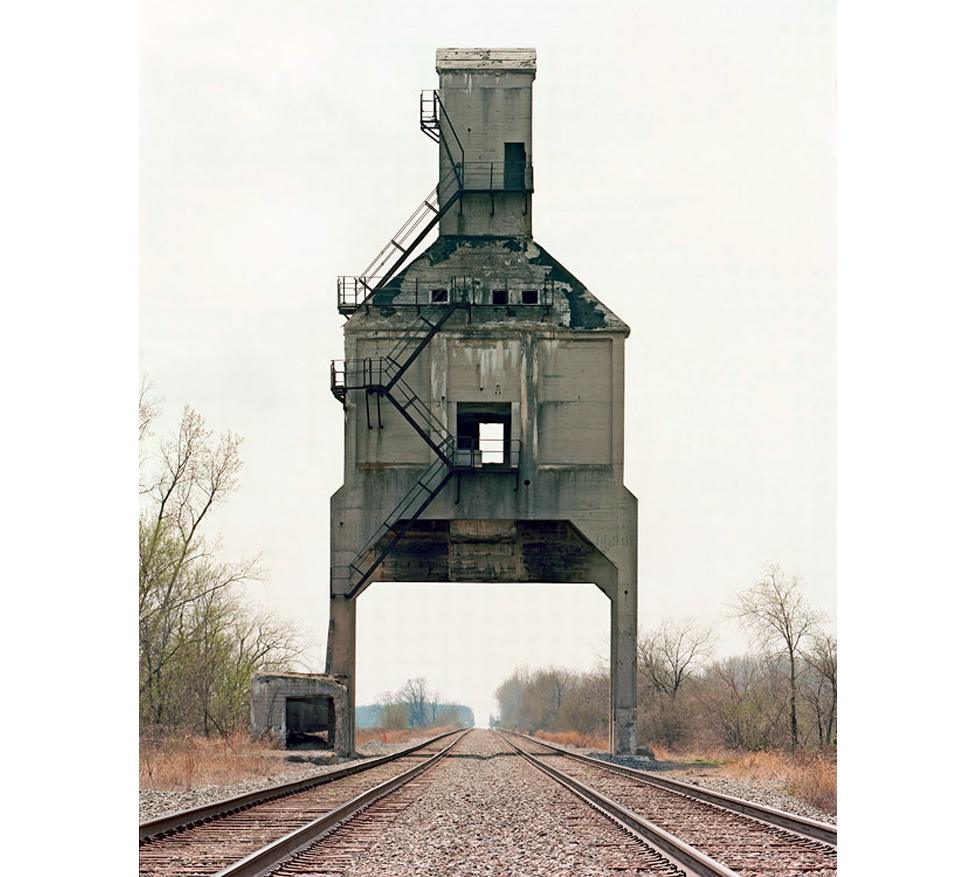
Coaling Tower, Marion, Ohio
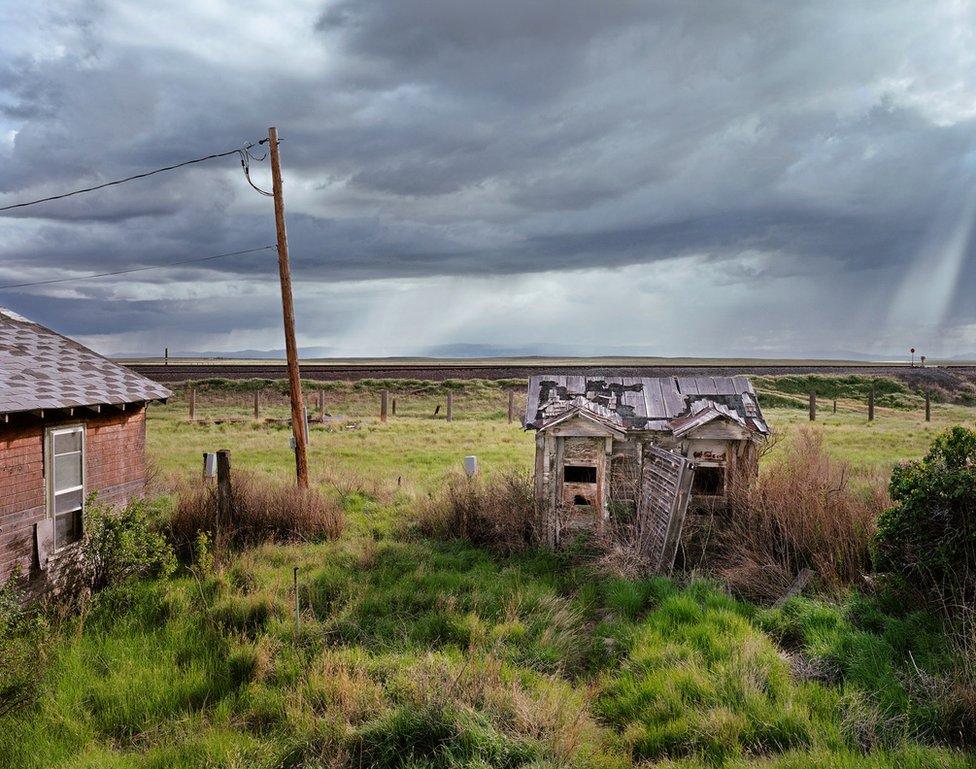
Clearing Storm, Medicine Bow, Wyoming
He appreciated the quietness of the tracks, as opposed to the more frequently documented roads of America.
That is, he said, "until a 100 car-long freight train rumbles into the scene".
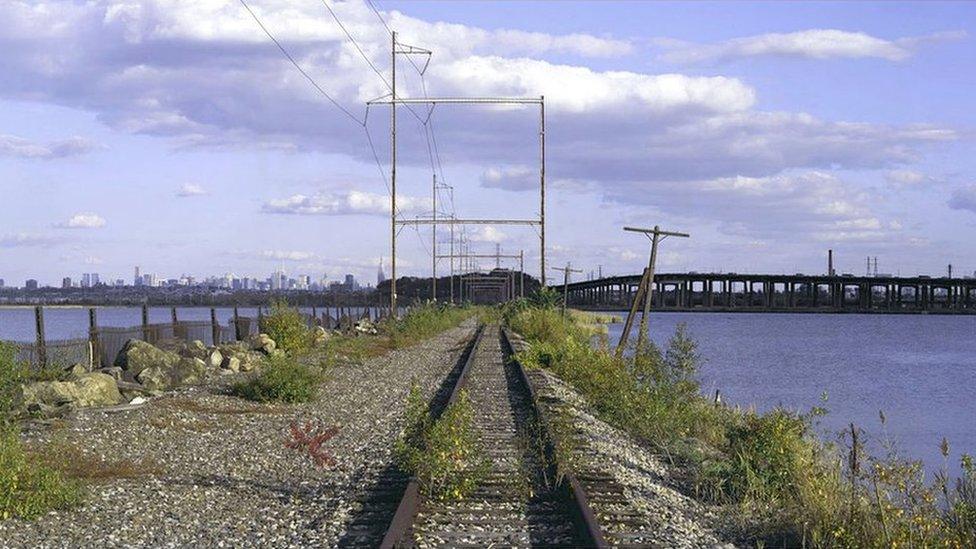
View of Manhattan from Kearny, New Jersey
Photographs by John Sanderson, external.